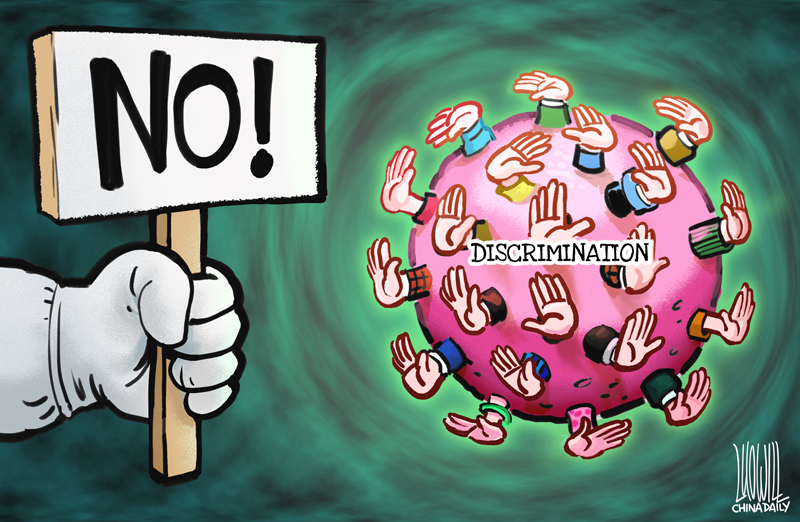
By Yury Tavrovsky
"The Chinese! The Chinese are coming!" Two men were running and shouting at the entrance of the Exhibition subway station in Moscow. I looked around and saw a group of Chinese tourists taking pictures of the elegant and gigantic Monument to the Explorers of Space.
The two men were wearing the uniform jackets of street cleaners and looked like migrant workers from Central Asia. Other people near the very busy subway station were not at all surprised or terrified at the view of a dozen of tourists wearing masks. People in Moscow know about the novel coronavirus epidemic in China, discuss it, watch TV programs and sympathize with people of Wuhan and other parts of the stricken country.
Of course the Russians at first were full of fear that the lethal virus will reach their cities and they will look like the deserted streets of Wuhan. But pretty soon the mainstream mass media explained that the situation in China is under control and the sacrificial efforts of Chinese medics and the efficient measures of the government to control further spread of disease are showing the desired effects.
As an expert on China, I have been asked to write many articles and speak on several national TV shows recently. I have explained that the novel coronavirus is just another natural calamity for the mankind like the floods in Siberia and Europe, forest fires in Australia and California or previous epidemics before. Specialists on viruses and epidemics have stressed the relatively low mortality rate of the new coronavirus and the dedication and professionalism of Chinese medical workers. Still some experts on the shows started to blame Chinese people saying that their way of life is the main reason for current and previous epidemics. "There are too many of them. They are concentrated in huge cities. Their air, soil, and waters are polluted. They lack food and have to eat bats and snakes … "
Comments of this sort can be found nowadays in many countries, especially among netizens. They concentrate on national or even racial aspects of the coronavirus epidemic in China. It looks like even after this epidemic is over we will have to fight another disease spreading around the world. It is called "yellow peril". It is very old. It is very contagious. We can trace "yellow peril" back to the Opium Wars in the mid-19th century. We see it in the infamous "Chinese Exclusion Act" of 1882 in America. We hear racist explanations of the inevitable "Cold War" with China from high-ranking officials of the US State Department. There are already reports of xenophobic attacks on the streets of cities in the United States, Germany, England and Italy.
The novel coronavirus has triggeed the new "civilized" edition of the "yellow peril". It is based on envy and fear of the Chinese Miracle. The results of the reform and opening-up over the past 40 years have been formidable. The efficiency of socialism with Chinese characteristics in the past seven decades cannot be denied. The future great rejuvenation of the Chinese nation is inevitable.
The entire history of mankind is full of the rise and fall of different civilizations. Some people analyze the Chinese experience and try to use elements of the Chinese dream for the benefit of their own nations. Yet there are people who do not want to share room at the top. They are not happy with the Chinese winning the game according to the rules set by themselves. They are changing the rules in the middle of the current party and say the winners are not playing fair. Being adepts of the monotheistic Judeo-Christian religion they cannot permit another nation to rule the world, especially if that nation is "godless". That way the competition inevitably spills over the boundaries of the trade war into civilization and race.
China is not Alice drinking her potion in Wonderland. It cannot become bigger or smaller at anybody’s whim. Its industrial, scientific and technological development cannot be stopped or even slowed. Still there is one thing China can and should do. It can still be modest. Of course, it is impossible now to "stay in the shadows" according to Deng Xiaoping’s advice. But Chinese people who work in international communication sector should not mix internal and external stories. "Triumphalism" is often counterproductive overseas. Chinese experts should not overestimate Chinese wisdom against European wisdom at international conferences.
International and interracial matters are very delicate. It is utterly irresponsible to speculate on them. Especially at a time of epidemics or other natural calamities.
The author is head of the Russian Dream and Chinese Dream Research Center of the Izborsk Club, Moscow.

 中文
中文



